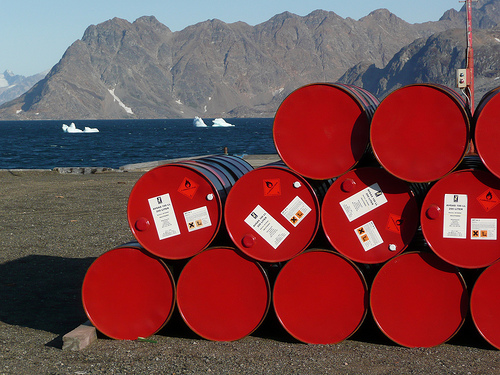Like many Americans, I battle with my waistline, watching the same twenty pounds come and go year after year. Eating everything from Tootsie Rolls to asparagus, at times the healthy fare wins over the junk food, but usually the other way around. No food is either good or bad, because consumption isn’t measured against a real plan to lose weight and get fit. It now appears that President Obama has adopted this Tootsie Roll approach to the nation’s energy needs.
Last week the President said he would facilitate more oil drilling in U.S. coastal waters. Acknowledging critics, he said it was part of “a broader strategy that will move us from an economy that runs on fossil fuels and foreign oil to one that relies more on homegrown fuels and clean energy.” Unfortunately, the U.S. has no more chance of winning with this approach than I do of permanently losing weight with my unmeasured consumption of candy and veggies.
In July 2008, then presidential candidate Barack Obama engaged several energy experts in a debate, asking each of us to argue against our own positions. At the time, politicians of both parties advocated for more domestic oil drilling, suggesting it could offset $4/gallon fuels that had become commonplace over the summer. Knowing that I come from California, which has repeatedly voted against it, he asked me to give him the best arguments FOR more domestic offshore oil drilling.
First, I said, we have no right to destroy the environment, lives, and livelihoods of impoverished villagers in places like Ecuador or Nigeria, where oil for the U.S. market is extracted, while imperiously protecting our own fragile coasts, waterways, and air quality. If we want the benefits of convenient fuels, we should bear the majority of the true costs, especially those that we would never tolerate in our own backyard. Second, the carbon footprint of oil from thousands of miles away is obviously much greater than anything sourced closer to the end users.
Finally, I argued that we need a plan to transition from fossil fuels — which are limited by Mother Nature and controlled by a few — to clean, renewable sources of energy that are both domestic and available to all of us. Once we have that clear blueprint, we should fill our short-term fossil-fuel needs from the sources closest to home to be more in control of our economic and environmental destiny.
I stand by those three arguments today and call on the president to work with stakeholders across the nation to develop such a plan, which might be based around a two simple concepts:
- Given global competition for a dwindling oil resource, we should plan to power at least 75 percent of our vehicles with inexhaustible, clean sources of domestic energy by 2025. That target would inform policy — and a detailed blueprint to achieve the goal — on both fuels and vehicle technology.
- Given our role in creating the climate crisis, we should plan to power at least half of our electricity needs with inexhaustible, clean sources of domestic energy by 2025. That target would create a policy blueprint, both for the development of sufficient energy supplies and for making our uses of energy far more efficient than they are today.
Mr. President, we need a real “strategy” that recognizes we will soon run out of oil and atmosphere, setting goals to sustain our economy and environment in equal measures. Within such a blueprint, we can then consider roles for all types of energy and assess the costs/benefits of each over time. Without a plan, just boosting supplies of various energy sources is no better than giving me more Tootsie Rolls and asparagus and hoping for the best.



